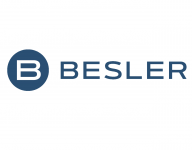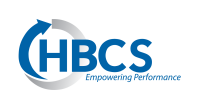* * * * * This post sponsored by Foley Hoag. * * * * *
On October 18, 2019, Governor Baker introduced House Bill 4134, An Act to Improve Health Care by Investing in Value, a wide-ranging set of legislative initiatives that, if enacted, would impact all parts of the Massachusetts health care industry. In introducing the bill, the Governor argued that Massachusetts “pay[s] for a system that is built on transactions and technological advances, not on collaborative care delivery, therapeutic support, or a combination of both.” As detailed below, the bill contains a wide range of new requirements that would give the state a bigger role in health care spending and investment.
Changes Applicable to Providers, Provider Organizations, and Insurers
Mandated Increases in Primary Care and Mental Health Spending
One of the bill’s centerpieces is mandated increased spending on primary care and mental health by all major actors within the healthcare system. The bill tasks the Health Policy Commission (HPC) with identifying a target for “aggregate [expenditures on] primary care and behavioral health” across Massachusetts. For 2020 – 2022, the bill sets that target at “equal to a 30 per cent increase above aggregate baseline expenditure,” which is defined as aggregate primary care and behavioral health spending in 2019.
To enforce this requirement, the bill would require reporting on aggregate primary care and mental health spending by “health care entities.” “Health care entities” is broadly defined to include “a payer, health care provider, or provider organization,” meaning the reporting and spending requirements apply to providers and insurers alike. The HPC would be permitted to require any “health care entity” that fails to meet the 30% increase requirement to file a performance improvement plan with HPC.
Monetary Penalties for Exceeding the Health Care Cost Growth Benchmark
The HPC sets and regularly updates a healthcare cost growth benchmark (typically around 3%). Health care entities identified as exceeding the benchmark are currently subject to a performance improvement plan. The bill would permit HPC – in addition to or instead of imposing a performance improvement plan – to impose “a civil penalty” on any entity that contributes to health care cost growth beyond the benchmark in an amount “up to the total cost attributable to the health care entity’s spending in excess of the health care cost growth benchmark.”
Providers
Mental Health Provider Capacity in Emergency Departments
The bill would require all acute care hospitals to “provide or arrange for qualified behavioral health clinicians to evaluate and stabilize a person admitted to the emergency department with a behavioral health presentation and to refer such person for appropriate treatment or inpatient admission.”
Prohibitions on Surprise Billing
The bill would amend G.L. c. 176O (which concerns health insurance consumer protections) to prohibit out of network providers from sending “surprise bills” to consumers. The bill defines a “surprise bill” as a bill received by a consumer “who is covered under a preferred or closed network health plan […] for covered services provided by an out-of-network provider for services rendered for emergency medical conditions or rendered by an out-of-network provider at an in-network facility” if the consumer has not consented to treatment by an out-of-network provider.
Restrictions on Facility Fees
The bill would prohibit health care providers from charging “facility fees” for services that are not provided on a hospital’s “campus” (which is defined as structures within 250 yards of the hospital’s main campus as determined by CMS for federal purposes). Separately, the bill would authorize HPC to identify a list of services “that may reliably be provided safely and effectively in settings other than hospitals.” Providers would also be prohibited from charging facility fees for these services.
Where facility fees remain permissible under the bill, they are subject to additional disclosure requirements. Providers that charge permissible facility fees would be required to provide patients with notice that facility fees will be charged and/or billed separately.
Broadening Prescribing Authority to Additional Mental Health Professionals
The bill would amend G.L. c. 94C, the Controlled Substances Act, to permit prescribing without physician oversight by certain psychiatric nurse mental health specialists who are properly licensed.
Urgent Care Facilities
“Urgent care facilities” currently operate in Massachusetts under a variety of licensure arrangements, and are typically licensed as outpatient clinics. The bill would separately define “urgent care clinic” as facilities offering “urgent care services,” which would mean “episodic care for the diagnosis, treatment, management, or monitoring of acute and chronic disease or injury that is: (1) for the treatment of an illness or injury that is immediate in nature but does not require emergency services, (2) generally provided on a walk-in basis without a prior appointment, and (3) available to the general public, and is not intended as the patient’s primary care provider.”
Any facility defined as an “urgent care clinic” would be required to be licensed by the Department of Public Health, in a process separate from clinic licensure. The licensure regulations would require that all urgent care clinics participate in MassHealth, and would prohibit any facility not so licensed from advertising that it provides “urgent care,” short term care, or any similar service.
Insurers
Mental Health Requirements
The bill imposes a series of related requirements on payment for mental health services. First, an insurer would be prohibited from denying coverage for “two [mental health] services delivered on the same day in the same practice or facility.” Second, the bill would amend several provisions of the insurance laws to require coverage for services rendered by “a clinician practicing under the supervision of [a] licensed professional, and working toward licensure.” Third, insurers would be required to utilize uniform credentialing forms developed by the Division of Insurance’s Bureau of Managed Care “as sufficient information necessary to conduct its credentialing process” for mental health providers.
The bill also attempts to gather additional information about the role of out-of-network services in mental health. Insurers would be required, as part of annual reporting to the Division of Insurance regarding compliance with state and federal mental health parity laws, to report on “the number of approved out-of-network services for behavioral health services and the number of approved out-of-network services for non-behavioral health services.”
The bill would also require expanded coverage for telemedicine, and would prohibit insurers from denying payment solely on the basis that a service was not delivered in person (though the bill would permit insurers to apply utilization review and similar processes for telemedicine services).
The bill will also augment existing requirements for publishing of provider directories. Currently, insurers are required to publish a wide variety of information in both paper and electronic directories and regularly update such information. The bill focuses on improving the accuracy of that information, by requiring insurers “at least once every quarter, [to] audit [their] provider directories for accuracy and retain documentation of the audit.” This requirement is similar to that imposed on provider directories for certain federal health care plans, such as Medicare Advantage.
Pharmaceutical Manufacturers
Review of Certain High Cost per Utilizer Drugs
The bill contains a version of the controversial drug pricing proposal that had been included in Governor Baker’s prior budget proposals. The bill directs the Center for Health Information Analysis (CHIA) to determine “the average annual gross cost per utilizer of each drug approved during the preceding 5 calendar years by the U.S. Food and Drug Administration.” Where CHIA identifies an average gross cost per utilizer above $50,000 per year, it will “refer the drug to [HPC] for review.”
The bill then sets up a review process run by HPC. First, HPC may require manufacturers to “disclose to [HPC] within a reasonable time information relating to the manufacturer’s pricing of that drug,” including information regarding wholesale acquisition costs and research and development expenditures. Then, HPC will “identify a proposed value for a prescribed drug.”
If the HPC then determines that “the manufacturer’s pricing of the drug is potentially unreasonable or excessive in relation to the [HPC]’s proposed value,” it may request additional price-related information from the manufacturer, as well as from patients, providers, provider organizations, and insurers. HPC will then issue a decision regarding whether the “pricing of the drug is unreasonable or excessive.”
The bill does not specify a clear penalty when this occurs, though it is possible that the bill intends for an “unreasonable or excessive” price to be treated as an unfair or deceptive trade practice pursuant to G.L. c. 93A. An earlier budget proposal had contemplated that, when an “excessive price” was identified, the matter would be referred to the Attorney General for investigation under G.L. c. 93A. The bill does not contain that specific provision, though the Attorney General would likely argue that specific language conferring authority to investigate “excessive prices” is not necessary under G.L. c. 93A.
Penalties for Drug Price Increases
The bill attempts to prohibit “excessive price increases” for prescription drugs, defined as increases beyond the sum of the CPI for Greater Boston plus two percent. An “increase” would be defined with reference to “the price of a drug as of October 1, 2019” or, for drugs introduced after October 1, 2019, the time that a drug is first marketed in Massachusetts. “Price” itself would be defined as “the wholesale acquisition cost of a drug, per unit.”
An “excessive” increase would be punished by a penalty of “80 per cent of the excessive price increase for each unit.” The penalty would be administered by the Department of Revenue.
Pharmacy Benefit Managers
The bill will create a new insurance statute – GL. c. 175N – covering pharmacy benefit managers, which will be defined as any entity “that administers […] pharmacy benefit services for prescription drugs and devices on behalf of health benefit plan sponsors.” Under G.L. c. 175N, a pharmacy benefit manager will be required to register with the Division of Insurance and “submit data and reporting information to [CHIA] including information associated with discounts, retained rebates, and earned margins on payments to pharmacy providers on behalf of health plans.” Pharmacy benefit managers would be subject to oversight and examination by the Division of Insurance in much the same way as an insurer.
About the Author: The author is an Attorney with the law firm Foley Hoag. For questions, please contact Jeremy Meisinger in the Boston office.















